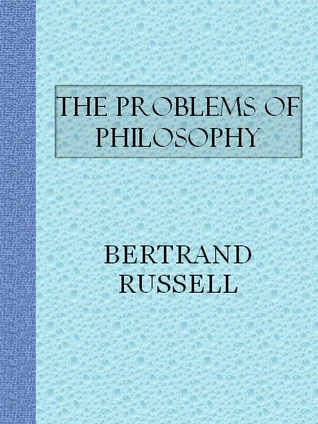Bertrand Russell's dilemma.
3 estrellas
Rather, The Problems of Philosophy, a more apt title might be, The Problems of Philosophers. In an attempt to not get tied up in a Gordian knot, Russell provides a brief, sequential study into the conundrum of perspective and truth, and how philosophical ideologies have tried to deal with it. The book was written in 1911, and Russell states in an afterword written in 1924, that some of his views had changed since the first writing but has kept the book as it is, as a progression of thought. Throughout, he mostly ignores language, which is a shame, but he does set aside some attention to it in the chapter, How A Priori Knowledge Is Possible. Some passages seem to spring straight out of a Dr Seuss book, such as, "Thus, when we are acquainted with an object which is the so-and-so, we know that the so-and-so exists; but we …
Rather, The Problems of Philosophy, a more apt title might be, The Problems of Philosophers. In an attempt to not get tied up in a Gordian knot, Russell provides a brief, sequential study into the conundrum of perspective and truth, and how philosophical ideologies have tried to deal with it. The book was written in 1911, and Russell states in an afterword written in 1924, that some of his views had changed since the first writing but has kept the book as it is, as a progression of thought. Throughout, he mostly ignores language, which is a shame, but he does set aside some attention to it in the chapter, How A Priori Knowledge Is Possible. Some passages seem to spring straight out of a Dr Seuss book, such as, "Thus, when we are acquainted with an object which is the so-and-so, we know that the so-and-so exists; but we may know that the so-and-so exists when we are not acquainted with any object which we know to be the so-and-so, and even when we are not acquainted with any object which, in fact, is the so-and-so."
Much of the book feels like Russell, working stuff out on the spot, applies in his knowledge of Kant, Plato, Hegel, Leibniz &c, to elucidate his examples. For me, his logic, at times, backed me into a corner, and the examples of the theory, in my view, were not the best thought out. However, it's a thought provoking read, which is the point of the book. So worth a read if you don't have time to wade through the works referenced within.

